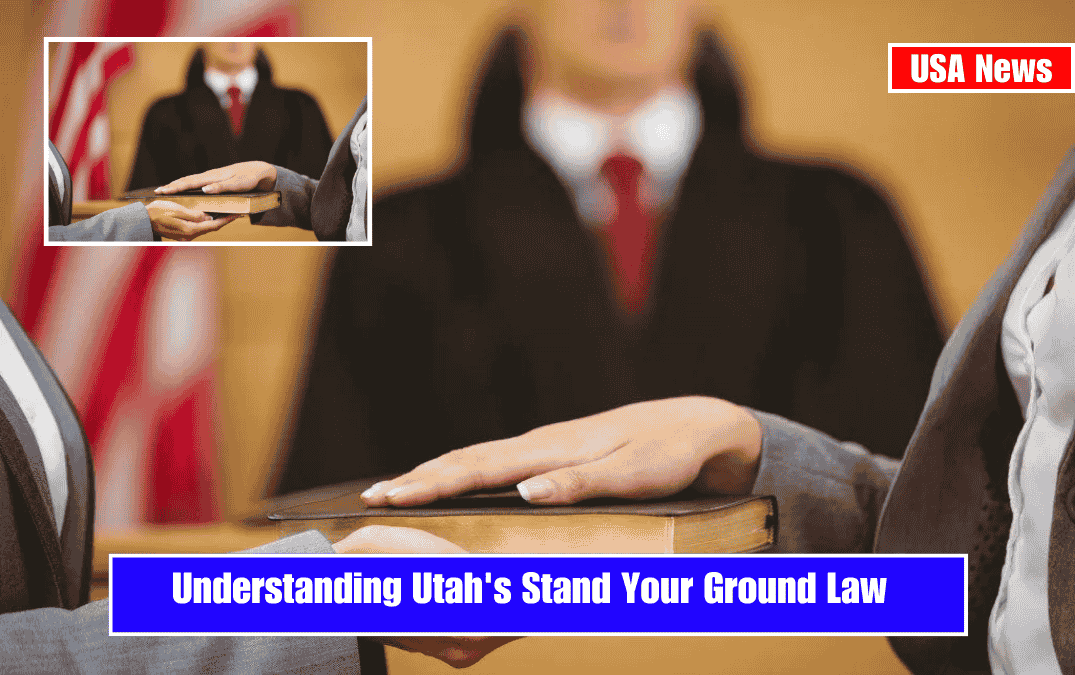Utah’s Stand Your Ground law is a pivotal aspect of the state’s self-defense framework, granting individuals the right to use deadly force in certain situations without the obligation to retreat. This guide provides an overview of the law, its application, and key considerations for lawful self-defense in Utah.
Legal Foundation
Utah’s Stand Your Ground law is codified under Utah Code § 76-2-402, which governs the use of force in self-defense. The law allows individuals to use reasonable force, including deadly force, to protect themselves or others from imminent threats of death or serious bodily harm. Crucially, it removes the traditional duty to retreat if the individual is in a place where they have lawfully entered or remained.
Key Provisions
- No Duty to Retreat: Under Utah law, a person does not need to retreat before using deadly force in self-defense, provided they are lawfully present at the location of the incident.
- Imminent Threat: The use of force must be justified by an imminent danger of unlawful force that could result in death or serious injury. The threat must be immediate and unavoidable.
- Proportional Force: The response must be proportional to the threat faced. For example, using deadly force against an unarmed individual would likely not be justified unless there was a clear risk of serious harm.
- Lawful Presence: The individual must not be trespassing or engaged in criminal activity at the time of the incident.
- Pretrial Justification Hearing: Defendants claiming self-defense are entitled to a pretrial hearing where prosecutors must prove by clear and convincing evidence that the use of force was not justified. If this burden is not met, charges are dismissed.
Stand Your Ground vs. Castle Doctrine
While Stand Your Ground laws apply broadly to public spaces, Utah also recognizes the Castle Doctrine, which permits individuals to use force within their homes without retreating. This doctrine reinforces the idea that one’s home is a protected space where self-defense rights are heightened.
Limitations and Considerations
Despite its broad protections, Utah’s Stand Your Ground law has limitations:
- Provocation: Self-defense claims are invalid if the individual provoked the altercation.
- Unlawful Activity: Engaging in illegal conduct at the time negates protection under this law.
- Reasonable Belief: The belief in imminent danger must be both honest and objectively reasonable.
Additionally, while Utah law removes the duty to retreat, individuals may still choose to retreat if it is safe and practical, as doing so can prevent unnecessary harm and legal complications.
Impact on Legal Proceedings
Utah’s Stand Your Ground law shifts significant burdens onto prosecutors:
- At pretrial hearings, they must prove that deadly force was unjustified.
- During trials, they must establish beyond a reasonable doubt that self-defense claims lack merit—a higher standard than traditional self-defense cases.
This legal structure strengthens protections for defendants acting in genuine self-defense.
Practical Advice
To ensure compliance with Utah’s Stand Your Ground law:
- Only use deadly force when facing an imminent and unavoidable threat.
- Avoid provoking confrontations or engaging in illegal activities.
- Familiarize yourself with local laws and take firearm safety courses if carrying weapons for self-defense.
Utah’s Stand Your Ground law empowers individuals to protect themselves without retreating when faced with imminent danger, provided they act reasonably and remain within legal boundaries. Understanding these provisions ensures lawful self-defense while minimizing risks of legal repercussions.
SOURCES:-
[1] https://gunclassutah.com/utah-stand-your-ground-law/
[2] https://utahcarrylaws.com/laws/utah/self-defense/
[3] https://www.rand.org/research/gun-policy/analysis/stand-your-ground.html
[4] https://www.findlaw.com/criminal/criminal-law-basics/states-that-have-stand-your-ground-laws.html
[5] https://www.utahdivorcenow.com/blog/2023/february/what-are-utah-s-self-defense-laws-/















